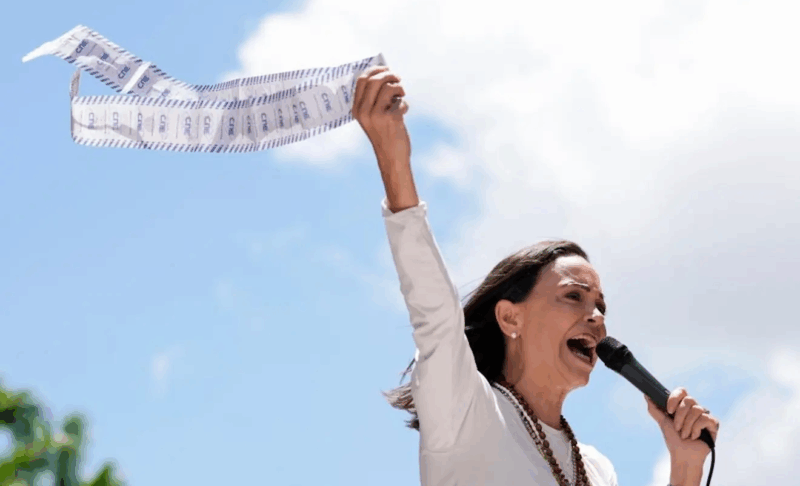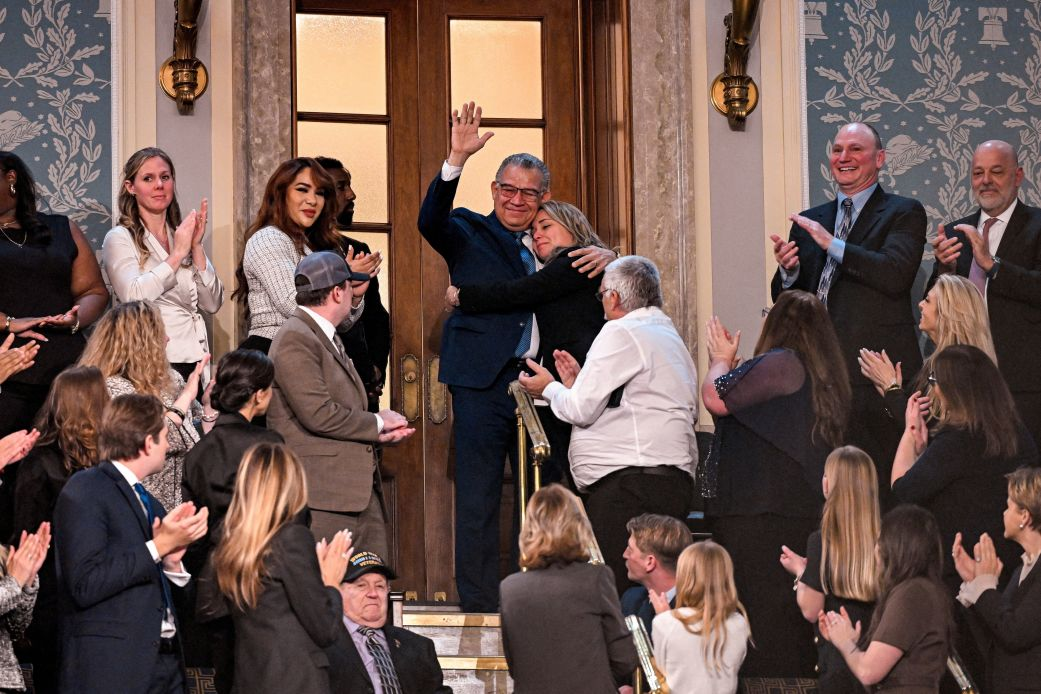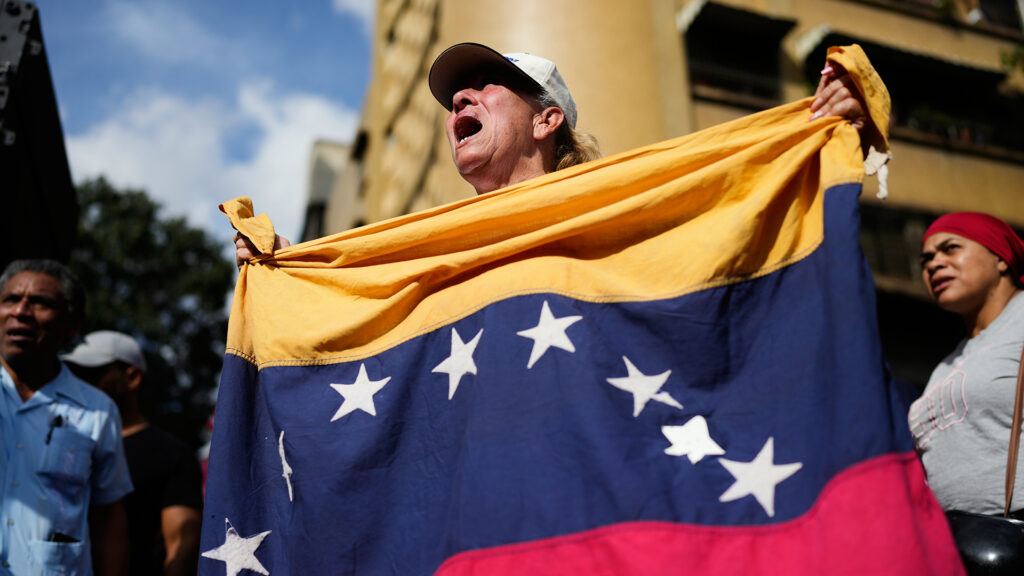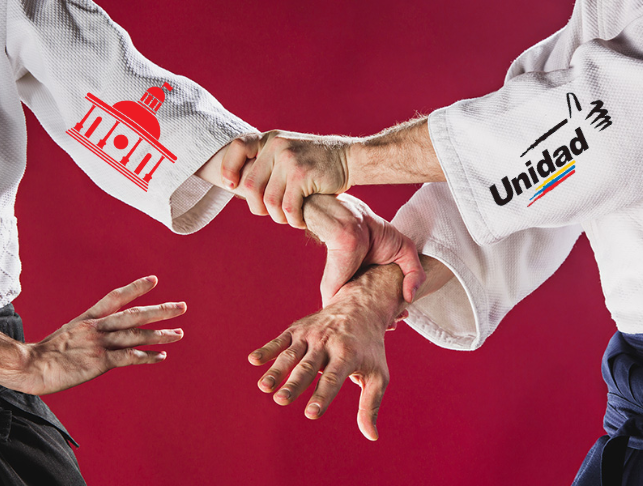María Corina’s Nobel Prize May Boost Venezuela’s Democratic Aspirations. Here’s Why
It’s not every day your country earns a Nobel Peace Prize laureate, much less one currently forced to hide in a safe house

“Aló…” At a loss for words, Maria Corina Machado takes a call in the middle of the night, a few minutes before 5:00 a.m., from the Secretary of the Norwegian Nobel Committee to learn that she has just won the 2025 Nobel Peace Prize. The story is everywhere by now. The Nobel press release is an indictment on authoritarianisms around the globe and a rightful espaldarazo for the Venezuela cause. Well deserved, in our opinion, as it reads: “…for her tireless work promoting democratic rights for the people of Venezuela and for her struggle to achieve a just and peaceful transition from dictatorship to democracy.” But we won’t dive into these struggles. We did it in detail in our coverage of the 2024 elections and you’ll find fresh MCM profiles all over the intertubes today. What we want to do here, while the news is still warm from the oven, is to offer our view of what this new development means for the current Venezuela conflict.
They can’t touch her. Or at least, the costs of attacking María Corina Machado have just skyrocketed. Diosdado Cabello, the Interior Minister, has made several threats that he will have her captured if the U.S. were to strike Venezuelan territory or regime figures, portraying her as a human shield. Maduro agents actually attacked Machado the last time she appeared in public, on January 9, when she rallied Venezuelans to demonstrate a day before Maduro’s illegal inauguration. Armed men took her from a bike as she attempted to leave the protest in eastern Caracas. She was briefly kidnapped. Then, they forcefully recorded her in a park, telling the public that she was alright and being released.
The Nobel makes it virtually impossible to believe Nicolás Maduro’s victimization campaign. All over the world, millions of people were waiting for the winner looking at the possibility of Donald Trump getting the award. That global audience is now reading the story of the great feat of July 28. After weeks of propaganda and lobbying to paint Maduro as the peaceful president of a tropical republic threatened by Uncle Sam, Maduro is again treated like what he has always been, a dictator who has done everything to remain in power and blocking any possibility of peaceful transition, who stole the election after Machado led millions to vote against all odds and organized thousands to protect the official records of Maduro’s defeat, and who pushed her into hiding after neutralizing most of the opposition leadership that was active in the country.
It’s an award for the democratic efforts of the Venezuelan people. Machado did not get a Nobel for being leader of the opposition, or for being a friend of Marco Rubio and a Trump ally, but for leading the comanditos, and the campaign to challenge an authoritarian regime with the massive, grassroots organization of thousands of anonymous citizens. This Nobel prize is about the struggle to rebuild the democracy that chavismo tore apart.
No serious negotiation or transition should be made without her. Machado’s leadership is teleported to another level. A reputational boost in the international arena doesn’t get any better than this. She now becomes the first Venezuelan ever to individually win a Nobel Prize in any category (immunologist Baruj Benacerraf won it in Medicine with his research team in 1980). She is defining a new level of prestige in the country’s political history. The prize bolsters her political capital and gives her a moral aura in the eyes of the world unmatched by anyone in the opposition, let alone chavismo. Edmundo González Urrutia is still the president elect, but Machado is a towering figure next to him. However, the prize does improve his case as the third key character in the events of July 28, after Machado’s leadership and the Venezuelan people.
The 2025 Nobel Peace Prize is a global endorsement of the Venezuelan society’s aspirations to enter a new, democratic era. It also revitalizes the historical significance of the July 28 presidential election.
Trump might recalibrate. The U.S. president was hoping he could win, and his chances certainly looked better a day after Israel approved the peace agreement with Hamas that Trump himself brokered. The news about Machado snatching the Nobel prize forces him to act regarding Venezuela. He only named Machado publicly once this year, when she was briefly kidnapped on January 9 protest, to dissuade Maduro & Co. from imprisoning her. POTUS controls the narrative over the naval deployment in the Caribbean, and now, leaving the task unattended or unfinished looks more costly. The United States must not only raise the tone about protecting Machado, its close ally, from Maduro and Cabello. They must consider her personal security in the event of a military attack in Venezuelan territory, and guarantee she retains a leading role in an eventual political process, be it a transition or a proper negotiation with the military and chavista elite. There’s always the possibility that U.S. military pressure wanes, but the option of abandoning the Venezuelan cause now looks more distant. The prize may also recalibrate Machado’s demeanor as well, considering she is now the face of global peace.
Machado looks more presidential than ever. We’ve said it before, while Edmundo González is the vessel who has the legitimacy for a transition in the short term, Machado is the one who has the political capital that got them here. And now, with a Nobel peace prize under her arm, that political capital should give her dividends for years to come. This is not automatically a ticket to Miraflores. We need our democracy back first, and should mind the cases of Peru’s Javier Pérez de Cuellar, who could not become president after winning the Nobel Peace Prize. But in the desert of Venezuela’s political leadership, she is the only oasis of popular support, moral weight and global recognition. Of course, should González sit as president it is likely to see Machado as VP and very possibly as interim president before the next election cycle. But let’s not get ahead of things, especially considering that Venezuela is extremely hard to predict and considering that a good transition agreement is usually one in which none of the parties is completely happy.
Don’t let pessimistic comments fool you. This is excellent news. The Norwegian Nobel Committee awarding María Corina is a global endorsement of the Venezuelan society’s aspirations to enter a new, democratic era. It revitalizes the historical significance of the July 28 presidential election, a breakthrough that looked unfeasible to many inside Venezuela. And which now should have its own paragraphs in world history books, with a golden medal of Alfred Nobel at the top of the page.
Caracas Chronicles is 100% reader-supported.
We’ve been able to hang on for 22 years in one of the craziest media landscapes in the world. We’ve seen different media outlets in Venezuela (and abroad) closing shop, something we’re looking to avoid at all costs. Your collaboration goes a long way in helping us weather the storm.
Donate




